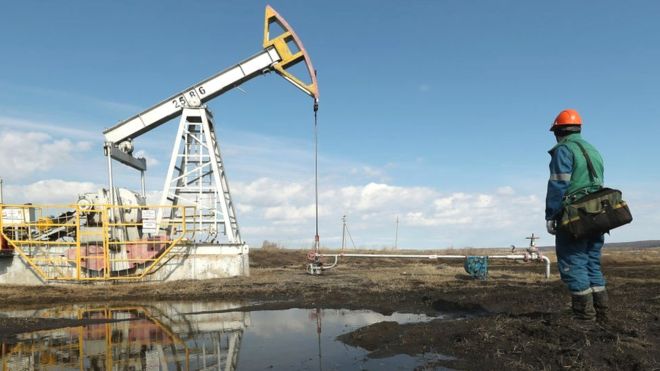
Opinion: Oil is here to stay

By Jonan Twinamatsiko
In an interview with President Yoweri Museveni, NBS TV’s Canary Mugume asked the President whether delaying oil production doesn’t risk making Uganda’s oil useless. Museveni’s response —that oil becoming useless is not a big problem since the country has other resources to rely on as it always has aside, Canary’s line of questioning reflected a school of thought that’s become popular with commentators on the oil sector, which suggests that Uganda’s delay to extract its oil from the ground is fast rendering the resource useless.
Some commentators, like veteran journalist Andrew Mwenda have underscored the possibility of fossil fuels becoming obsolete, to be replaced by renewable energies.
While continued delay of the Final Investment Decision (FID) between the Government and the International Oil Companies (IOCs) risks would-be returns from Oil, the claim that the resource will become useless is at most an exaggeration.
This is because, to start with, the expectations of a fast, renewables-driven energy transition ignore the present reality of today’s energy systems in which reliance on fossil fuels remains stubbornly high. Fossil fuels constitute 85% (34% oil, 27% coal, 24% Natural Gas) and only 15% are renewable energy (7% hydro, 4% nuclear, and 4% other renewables) of the currently consumed global primary energy mix. The May 2019 Barclays Investment Bank’s report “Oil in 3D: The demand outlook to 2050,” showed that energy demand is set to rise 40-75% between 2019 and 2050 and that renewables could make up only paltry 30% of the energy mix by 2050. The 2019 International Energy Outlook gives similar estimates.
Vaclav Smil, author of the 2010 book; “Energy Transitions: History, Requirements, Prospects,” correctly argues that energy transitions taking place on a global scale are inherently protracted affairs, usually taking decades to accomplish. He further argues that the greater the degree of reliance on a particular energy source, the longer their substitutions will take. Thus while a world without fossil fuel combustion is highly desirable, as in the past, the coming energy transitions will unfold across decades, and not years.
In 2018, energy demand increased by 2.3% and is expected to continue to increase at 1.3% per year until 2040. There’s also a fair correlation between the global expansion of primary energy consumption and the expansion of the world’s economic product. World Bank (2001) reported that during the twentieth century, a roughly 17-fold expansion of commercial energy use (from about 22 to approximately 380 EJ) produced a 16-fold increase of economic output, from $2 to $32 trillion in constant 1990 dollars. Similarly, a correlation is revealed by studying historic statistics of many individual countries.
Combustion, ie rapid oxidation of carbon and hydrogen in biomass and fossil fuels, has been the dominant energy conversion since the early stages of human evolution. For hundreds of thousands of years of hominin evolution, it was limited to wood burning in open fires, and the combustion of biomass fuels remained the principal means of securing heat and light until the advent of industrialization.
Over the past 20 years however, oil demand has increased by 30%, and the main drivers are across several key industries including autos, trucks, aviation and maritime, petrochemicals, and power and these are likely to continue to play out between now and 2050.
By 2040, Africa which boasts of the richest solar resources in the world, will have a larger oil consumption than China, and will be only second to India. Between 2018 and 2040 the oil demand in Africa shall be 3.1 Millions of Barrels per Day (Mb/d), China 3.0mb/d, and India 4.3mb/d, according to the 2019 World Energy Outlook. This is attributed to the expected urbanization, population rise, infrastructure development, and the increasing oil discoveries on the continent.
Modern societies require many forms of energy to satisfy their many final needs. Energy systems have increasingly become more interdependent and their integration is steadily expanding. Only in the pre-industrial world, where energy systems were patchworks and independent entities, could the advent of an alternative primary energy source cause obsoleteness of the other. Today, a small village that relied on a nearby forest and crop residues for all its fuel needs now requires a cocktail of primary energy sources.
Policy debates therefore need to refocus, design a pathway that enables the world to meet sustainable climate, energy access, and air quality goals while maintaining a strong focus on the reliability and affordability of energy for a growing gloåbal population.
The post Opinion: Oil is here to stay appeared first on Nile Post.
0 Response to "Opinion: Oil is here to stay"
Post a Comment